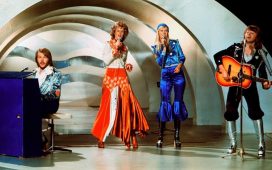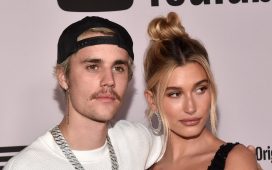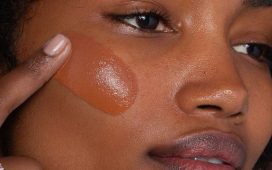Even when covered in wee, it’s great being José Álvaro Osorio Balvin. A tortoise may have just urinated all over his Versace silk pyjama suit, yet the South American superstar singer remains serene. Perhaps, as he gazes at the Anish Kapoor sculpture, Balvin is thinking about how massively rich he is. The musician owns various houses around the world and has so many expensive watches that there is a YouTube video dedicated to rating his collection out of 10 (he scored a 7.5).
His private jet – a $4m Dassault Falcon 2000, according to the internet – is currently idling in nearby Olbia airport, ready to whisk him to Ibiza tonight for a 90-minute show at Pacha, before dropping him back here, a multimillion-pound mansion in Sardinia. This house, which he is renting for the summer while he tours Europe, comes complete with devastatingly beautiful views of the eastern peninsula and art from Kapoor, Damien Hirst, Jeff Koons and Fernando Botero. His own Medellín home features art by his actual friends KAWS and Takashi Murakami. When Balvin gets thirsty, he simply voicenotes his butler Max, a slender, handsome Sardinian man who is omnipresent yet discreet. A murmured request into his iPhone X asking for a black coffee is signed off with “te amo”. Balvin is unfailingly polite, offering food and even the slightly wet clothing off his back when he discovers I have lost my suitcase. Before we leave, he insists that Max cracks open a very expensive bottle of champagne.
He may not be a household name in the UK, but 34-year-old J Balvin is arguably – statistically – one of the most successful musicians in the world right now. The Colombian is credited with the revival of reggaeton, with monthly streaming figures that currently surpass those of Drake, Justin Bieber and Cardi B. He is second only to the unstoppable Ed Sheeran. His recent release, Oasis – an ebullient eight-track joint album with Puerto Rican singer Bad Bunny – was called “historic” by both Fader and Vulture and “goofy but incredibly fun” by Pitchfork. It clocked up 40m streams in one week. Granted, streaming can be a malleable metric, but across the board Balvin’s numbers are phenomenal. “They made it official yesterday. I’m [currently] the most viewed artist on the planet on YouTube,” he says as we sit at a table shaped like a massive vulva.
Four of his videos have surpassed 1bn views, putting him in the same league as Ariana Grande and Taylor Swift. How does he even quantify, let alone visualise, such figures? “It’s hard to think in terms of these numbers,” he says of his streaming smashes Mi Gente, 6AM and Ay Vamos, “but it’s beautiful to see how far my music can go; numbers don’t lie,” he shrugs as shyly as a man with bright pink hair can.
He is hot property, then; so hot in fact that he is now managed by Scooter “JustinBieberArianaGrande” Braun, while Beyoncé, recognising his reach into territories hitherto untapped by most English-speaking stars, joined him on the remix of Mi Gente in 2017. In 2018, she invited Balvin on stage at Coachella. “She was super nice, she treats everyone with respect. The smaller you show yourself, the bigger people feel you, not the other way around. Big guys I’ve met like [Beyoncé and Pharrell] they’re so humble. They don’t brag.” This year, he played his own set at Coachella and became the first Latin artist to headline Lollapalooza.
His blend of reggaeton, which incorporates elements of trap, dancehall and dembow, is not particularly political – it’s upbeat music full of romance, fun, partying – but IRL he is a thoughtful person with a social conscience. Even when appearing on tracks by Pharrell, Liam Payne and Cardi B, Balvin sings in Spanish. Contrary to previous record industry rulebooks, this doesn’t hold him back in the slightest. “I want to be that guy to make Spanish music global so I’m going to keep pushing it,” he says. He doesn’t sing in English because he doesn’t need to, not these days. If the people want it, the people stream it. And they are, in droves. “It’s something I didn’t do by myself, it’s something Latino people have been working on for 100 years and now we’re seeing the effects,” he says of predecessors Celia Cruz, Daddy Yankee and his fellow Colombian Shakira.

If all Balvin’s riches, record breaking and right-on-ness sounds too good to be true, it is. A few years ago, as his career was ascending, he went through “a really stressful moment in life, everything was going crazy for me. I was lost in too many ways.” His finances, he says, were in a mess, and, “I let people do what they wanted to do.” He started to experience anxiety. “It’s the heart, the feeling that you’re out of your body, the feeling that you’re not conscious of your breath; that’s the worst part. And of course this emptiness here,” he says thumping his chest. “I’ve been through that and it’s hell, it’s really hard.”
He slipped into a depression. “It was the worst time in my life,” he says simply. “There’s a lack of information about depression. There’s one thing – being sad – which is emotional, the other thing is depression, which is a chemical thing in your brain. Depression is some different kind of monster that you cannot deal with if you don’t have the right medication.” People around him at the time didn’t help; they couldn’t understand why he was down when he seemed to have it all. “Yes, I have everything. Yes, I’m depressed. It’s not related and anyway it depends on what ‘everything’ is to you.”
He was reluctant to try therapy, assuming it was for “crazy” people, so he explored a variety of holistic alternatives. Nothing worked. “I did everything but the right thing, which was to go to the person who can check my brain,” he says. “That was the very last move but it was the most important one and that’s when I understood things better. So when I had the depression, the last thing I did was go to the shrink.”
Part of the reason he is based in Sardinia is for his mental wellbeing. His current schedule can mean playing eight shows in eight countries over eight days; this week alone, he has played in Greece, Finland, Germany and Spain. But he now takes precautions to look after his health: he is still on medication, although things are not as intense. He does colouring books to relax and he doesn’t drink, smoke or take drugs. He has a mentor, a wealthy older man whose daughter he once tried to date, who provides him solid spiritual guidance. He wakes each morning at 5am, he says proudly, to meditate and work out.
“Hey Max, tell her, what time do I wake up?”
“5am,” Max, who has soundlessly appeared with coffee, concurs immediately. “Every day.”
Meditation, he says, “saved my life”.
Balvin uses his platform to spread his moral code, too. He is outspoken in support of his LGBT audience – “It’s all about love. A lot of my closest friends are gay” – and dyed his hair rainbow colours for this year’s Pride. He also pulled out of a performance at Miss USA in 2015 after discovering Donald Trump part-owned the pageant. It was due to be his first ever US TV performance, but Balvin was outraged when the then presidential hopeful labelled illegal Mexican immigrants rapists, thieves and narcos. “You can’t buy ethics, ethics are not negotiable,” he insists. “I used to work illegal[ly] in the US while I was trying to find my dream. I’d paint houses, I was a dogwalker, I did the roofs. So when [Trump] said this I thought: ‘He’s crazy!’” He pauses momentarily. “You know, I don’t know if he’s crazy or if he’s actually smart. He wants to make you feel like he’s crazy so everyone talks about him so he’s popular and actually that’s smart. Maybe he knows exactly what he’s doing.”

In search of the American dream, Balvin moved from Medellín to the US – first Oklahoma and later Staten Island, New York – when he was 18. He grew up in a musical household, played guitar and idolised Kurt Cobain. He has a Nirvana tattoo on his knee. “Kurt, Tupac, Biggie – these are revolutionary guys,” he says. “Now I’m touring Europe and I see how the youth are reckless and jumping around, I understood that’s the revolution that Kurt was talking about. Kids have a lot going on inside and they just want to let it out, and that’s why we’re here. Maybe my lyrics are not social lyrics but I can help let that energy go. Kurt Cobain, Tupac, they’re masters: they taught me how to do things and how not to do things.”
He had enjoyed a relatively privileged life in the Colombian capital – Balvin’s father was a wealthy businessman – but this was still drug kingpin Pablo Escobar’s town in the 1980s and 90s. “Medellín is basically where evil was born,” he says with a wry grin. “I was aware of the violence since birth. That was made part of your reality even if you weren’t part of that life. Kidnappings and massacres, we grew up listening to that every day. But it’s beautiful to see how the city is right now. After hell, the only way you can go is to heaven and that’s what happened in my city. It’s such a beautiful place, people are so positive; everyone wants to help each other,” he says. “Now, when we see something happening we say: ‘No, we don’t want to go back to that moment.’ There’s a lot of great sports guys and musicians doing great things for Colombia. We’re all motivated to embrace our culture and give hope to the kids.”
I wonder if he ever considers how his privilege has benefited him – both his upbringing and that he can pass as white – and if he has any thoughts on appropriation, given the music he makes is Panamanian in heritage. It is the one time during our conversation that he is short and suddenly becomes distracted by his phone – and, as a result, his answer is vague. “A hundred per cent [I think about it]. I know I’ve got a mission and the mission is to be inspiring, inspire the world. Good vibes.” He is keen to talk about being a mentor to other musicians, about being a leader, a voice for his people. “I represent culture, I represent youth, I represent the people that follow me. Because what we have is power, people listen to us.”
We will have to wait to see what he does with that influence next, but it feels as if it could be significant. Alongside Rosalía, Becky G, Bad Bunny, Maluma and Ozuna, Latino artists have proved that modern music transcends translation. “Being an artist in a conservative country, especially a place not known for reggaeton, coming from a tough place, it’s always a risk to do this. But you know what I say,” he grins, finally taking the tissue from Max to wipe up the wee. “The bigger the risk, the bigger the win.”
J Balvin and Bad Bunny’s album Oasis is out now














